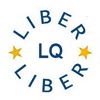How do Researchers in the Humanities Use Information Resources?
DOI:
https://doi.org/10.18352/lq.8017Keywords:
information resources, humanities, new technologies, research cycleAbstract
Information is at the heart of research. Every stage of the research cycle involves discovering, accessing, generating, manipulating, interpreting or presenting information, in order to advance knowledge. Researchers operate within a complex information environment, with needs that they themselves perhaps do not always fully understand, and are dependent upon services which are fast-changing and affected by much wider social trends. This paper examines how researchers in the humanities currently access, use and share information, paying particular attention to the influence of new technologies in changing information — and consequently wider research — practices. It finds that researchers are adopting new technologies where this helps them to work more effectively, but that traditional practices still dominate in some areas. There is mixed evidence of new research questions emerging as a result of engagement with new technologies.Downloads
Download data is not yet available.

Published
2012-01-13
Issue
Section
Articles
License
Copyright (c) 2012 Ellen Collins, Michael Jubb

This work is licensed under a Creative Commons Attribution 4.0 International License.
How to Cite
Collins, E., & Jubb, M. (2012). How do Researchers in the Humanities Use Information Resources?. LIBER Quarterly: The Journal of the Association of European Research Libraries, 21(2), 176-187. https://doi.org/10.18352/lq.8017





